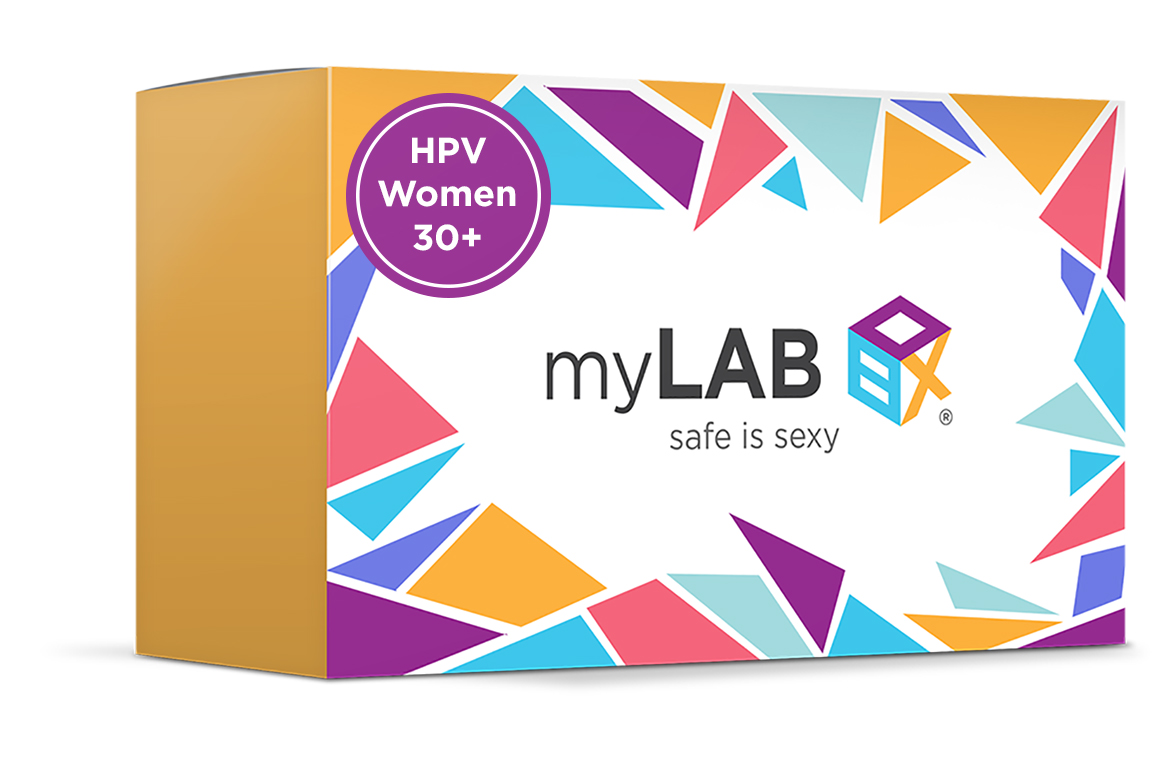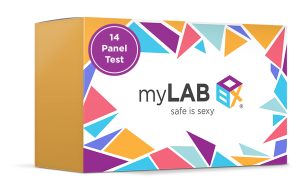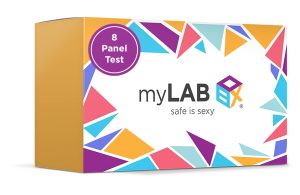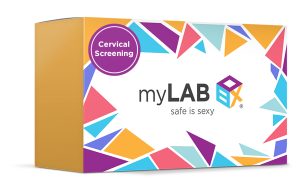HPV for Women 30+ (Human Papillomavirus)

- HPV is the #1 most common STD. This test is only available for women 30 years of age or older. It should not be ordered by men of any age or by women under 30.
- Mail-in kits for home use
- Test in just 5 minutes
- Lab results in 2-5 days
- 100% pain free
- Free physician consultation
- Enjoy free shipping
Temporarily unavailable in NY state.
Fast, easy, affordable at-home testing
Private
Test from the privacy of home
Easy
Lab Certified 5-minute test
Fast
Get results in 2–5 days
Free
Physician Consultations
Enjoy the convenience of an at-home HPV test. HPV (Human Papillomavirus) is the most common sexually transmitted infection. It is transmitted easily through sexual activities and usually presents without symptoms. It is common for people to infect others with HPV, without realizing that they are infected themselves.
Included: 1 (one) HPV test kit + pre-addressed return envelope (postage paid)
How it works: This test utilizes amplification of target DNA by polymerase chain reaction and nucleic acid hybridization for the detection of 14 high-risk HPV types.
Tests for: The test specifically identifies two of the most common high-risk HPV types: HPV16 and HPV18. Test results also include a third category “other high-risk HPV” identifying one or more of the 12 other high-risk types: 31, 33, 35, 39, 45, 51, 52, 56, 58, 59, 66 and 68.
WHY SHOULD I TEST FOR HIGH-RISK HPV (HRHPV) INFECTION?
There are about 150 different types or strains of the human HPV virus. These include approximately 40 types that can infect the genital area. About 14 of the 40 genital HPV types, including among others, HPV-16 and HPV-18, are called high-risk HPV (hrHPV) types. These types can cause persistent infection and result in pre-cancerous changes to the cervix. If these pre-cancerous changes are not detected and the abnormal cells left untreated, it can result in cervical cancer, a serious and potentially life-threatening disease.
HPV FAQs
How common is genital HPV infection?
HPV is the most common sexually transmitted infection (STI) in the United States, with an estimated 14 million new infections annually and 79 million Americans infected with HPV. In addition to causing cervical cancer, HPV can cause genital warts and cancers of the vagina, vulva, penis, anus, throat and mouth. In the most recent government study, about 40% of women and men had some type of genital
HPV infection. High risk genital HPV (hrHPV) is relatively common, found in one in five women and one in four men.
How is HPV spread?
HPV is spread by having vaginal, oral or anal sex with someone who has the virus. HPV can be transmitted even when there are no signs or symptoms of infection. You can get HPV if you have sex with only one person, and it can take years after infection to develop symptoms. This makes it difficult to know who infected you with hrHPV or when you were infected.
Does hrHPV infection cause symptoms or discomfort?
Genital infections due to hrHPV are almost always without signs and symptoms. In rare cases, hrHPV can cause bleeding between periods or pain and bleeding during intercourse.
What is hrHPV testing?
In the past, the only test available for cervical cancer screening was a Pap smear or HPV testing plus a pap smear. The Pap smear looks for cells damaged by high-risk HPV virus. In 2014, the FDA approved an HPV test for primary cervical cancer screening. This test detects DNA from 14 high-risk HPV types. It specifically identifies HPV 16 and 18, as well as 12 additional high-risk HPV types. This information, called HPV genotyping, may be helpful to medical providers in determining the next steps to take following a positive hrHPV test.
Why is primary hrHPV testing used for cervical screening for women 30 years of age and older?
In women under 30, hrHPV infections are relatively common and are usually cleared by the immune system in two years or less. As a result, screening for women under 30 years of age could detect HPV infections that are short-lived (usually less than 2 years), creating unnecessary worry and possibly leading to unneeded and damaging treatment and expenses. However, once a woman is 30 years of age or older, the presence of hrHPV infections takes on special significance and requires further evaluation.
How about HPV testing for men and testing at sites other than the cervix?
Unfortunately, HPV tests for men and HPV tests done on non-cervical sites such as the mouth and throat are not accurate. In addition, there are no treatments available for men with hrHPV positive tests and for men or women with hrHPV positive tests in the mouth and throat. As a result, CDC does not recommend HPV testing for men and does not recommend HPV testing at non-cervical sites such as the mouth and throat.
How about testing for low-risk HPV infection?
Infection with low-risk HPV does not cause cancer but can cause skin warts on and around the genitals, anus, mouth, or throat. Low-risk HPV types 6 and 11, for example, cause 90 percent of all genital warts, also called condylomata acuminata. There is no commercial test available to detect low-risk HPV infection. If you think you have genital warts or warts elsewhere on your body, you should see your healthcare provider for diagnosis and treatment.
WHAT HAPPENS IF YOUR TEST IS POSITIVE FOR HRHPV?
If you test positive for high-risk HPV (hrHPV) types and you are a woman 30 years of age or older, clinicians will usually follow up with a Pap smear looking for abnormal cells. If the follow-up Pap smear shows significant abnormalities, the clinician will suggest additional testing that can include colposcopy and repeat hrHPV testing. Clinicians may also refer for additional testing if HPV types 16 and 18 are positive and the Pap smear is negative.
HOW CAN I AVOID HPV AND THE HEALTH PROBLEMS IT CAN CAUSE?
By using latex condoms the right way every time you have sex, you can lower your chances of getting HPV. But HPV can infect areas that are not covered by a condom, and as a result, condoms may not provide full protection against getting HPV. Being in a mutually monogamous relationship can also reduce your risk of getting HPV. HPV vaccine is approved for women and men 26 years of age or younger to help prevent genital HPV infections. On a case-by-case basis, some clinicians may recommend the HPV vaccine for individuals over age 26. For women and men over age 26, the vaccine may offer some degree of protection against future HPV infections.
For more information about HPV, visit the CDC website:
https://www.cdc.gov/std/hpv/HPV-FS-July-2017.pdf
https://www.cdc.gov/cancer/cervical/pdf/cervical_facts.pdf
myLAB Box offers at home collection tests with mailing to the laboratory. The performance of these tests on your samples complies with all state and federal regulations regarding laboratory testing.
80%
1 in 3 people have an STD yet 80% have no symptoms

Fully Lab-certified
myLAB Box works only with the best laboratories and health experts to ensure your tests results meet nationwide standards and are as accurate as tests done in a clinic or a doctor’s office.
The laboratories we work with are certified CAP and CLIA high complexity testing organizations at the forefront of diagnostic testing. HIPAA web security protocols protect your data.
Fast, Easy & Private

Step 1
Order online on your mobile, tablet or PC

Step 2
Collect & mail in your sample in 5 minutes

Step 3
Get lab-certified results online in 1-5 days
You may also like…

Total Box
14 Panel STD Test
In Stock - Free Shipping
$369 – $399
Select options
Uber Box
8 Panel Home STD Test
In Stock - Free Shipping
Read more

Cervical Cancer Screening using HPV
HPV is a virus that causes cervical cancer. For women 30+ years of age.
In Stock - Free Shipping
$79
Select optionsOnly logged in customers who have purchased this product may leave a review.
Disclaimer
myLAB Box offers individuals with laboratory services for wellness monitoring. All tests are validated by myLAB Box clinical laboratory affiliates. Results are comparable to samples collected in a physician’s office or clinical laboratory. Tests used in myLAB Box kits have been developed and performance characteristics determined by myLAB Box clinical laboratory affiliates. Tests have not been approved by the US Federal and Drug Administration (FDA), although individual components of some tests performed in the laboratory are FDA-cleared. The FDA has determined that such clearance or approval is not necessary for laboratory-developed tests such as those offered by my LAB Box. These tests are used for clinical purposes only. They should not be regarded as investigational or for research. myLAB Box clinical laboratory affiliates are regulated under the Clinical Laboratory Improvement Act (CLIA) of 1988 as qualified to perform high complexity clinical testing and follow the guidelines of the College of American Pathologists (CAP). The tests, and services are not intended to diagnose, treat, or cure disease. All information given as to the use of the tests is provided for educational purposes only and is not intended to be a substitute for a physician’s consultation.
Reviews
There are no reviews yet.